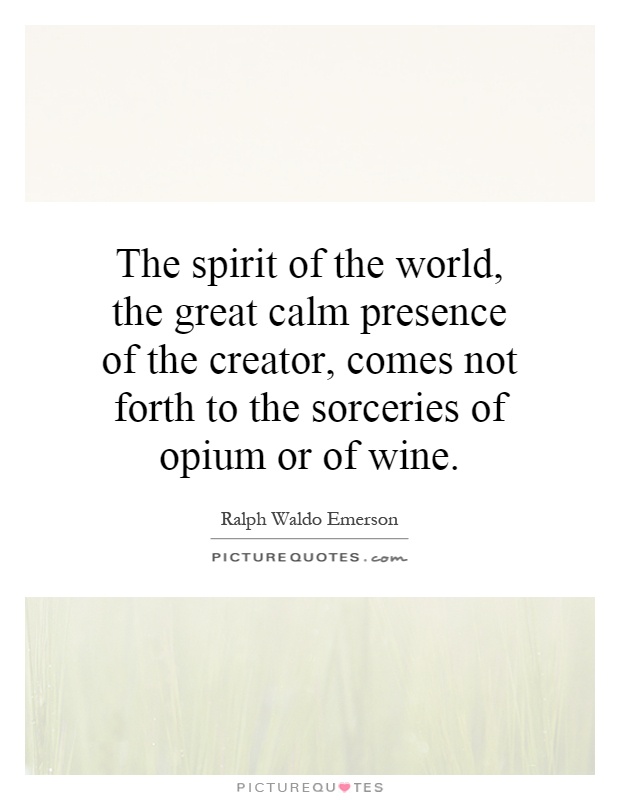The spirit of the world, the great calm presence of the creator, comes not forth to the sorceries of opium or of wine

The spirit of the world, the great calm presence of the creator, comes not forth to the sorceries of opium or of wine
Ralph Waldo Emerson, a prominent figure in the transcendentalist movement of the 19th century, was known for his philosophical writings that emphasized the importance of self-reliance, individualism, and the connection between humanity and nature. In his essay "The Over-Soul," Emerson explores the idea of a universal spirit or "Over-Soul" that connects all living beings and serves as a source of divine inspiration and guidance.One of the key themes in Emerson's work is the idea that true spiritual enlightenment and connection with the divine cannot be achieved through external means such as opium or wine. In the quote "The spirit of the world, the great calm presence of the creator, comes not forth to the sorceries of opium or of wine," Emerson is emphasizing the importance of inner reflection, self-awareness, and a clear mind in order to connect with the divine.
Emerson believed that the true source of spiritual enlightenment lies within each individual, and that by cultivating a deep sense of self-awareness and inner peace, one can tap into the universal spirit that connects all living beings. He saw opium and wine as distractions that cloud the mind and prevent individuals from achieving true spiritual growth and understanding.












 Friendship Quotes
Friendship Quotes Love Quotes
Love Quotes Life Quotes
Life Quotes Funny Quotes
Funny Quotes Motivational Quotes
Motivational Quotes Inspirational Quotes
Inspirational Quotes